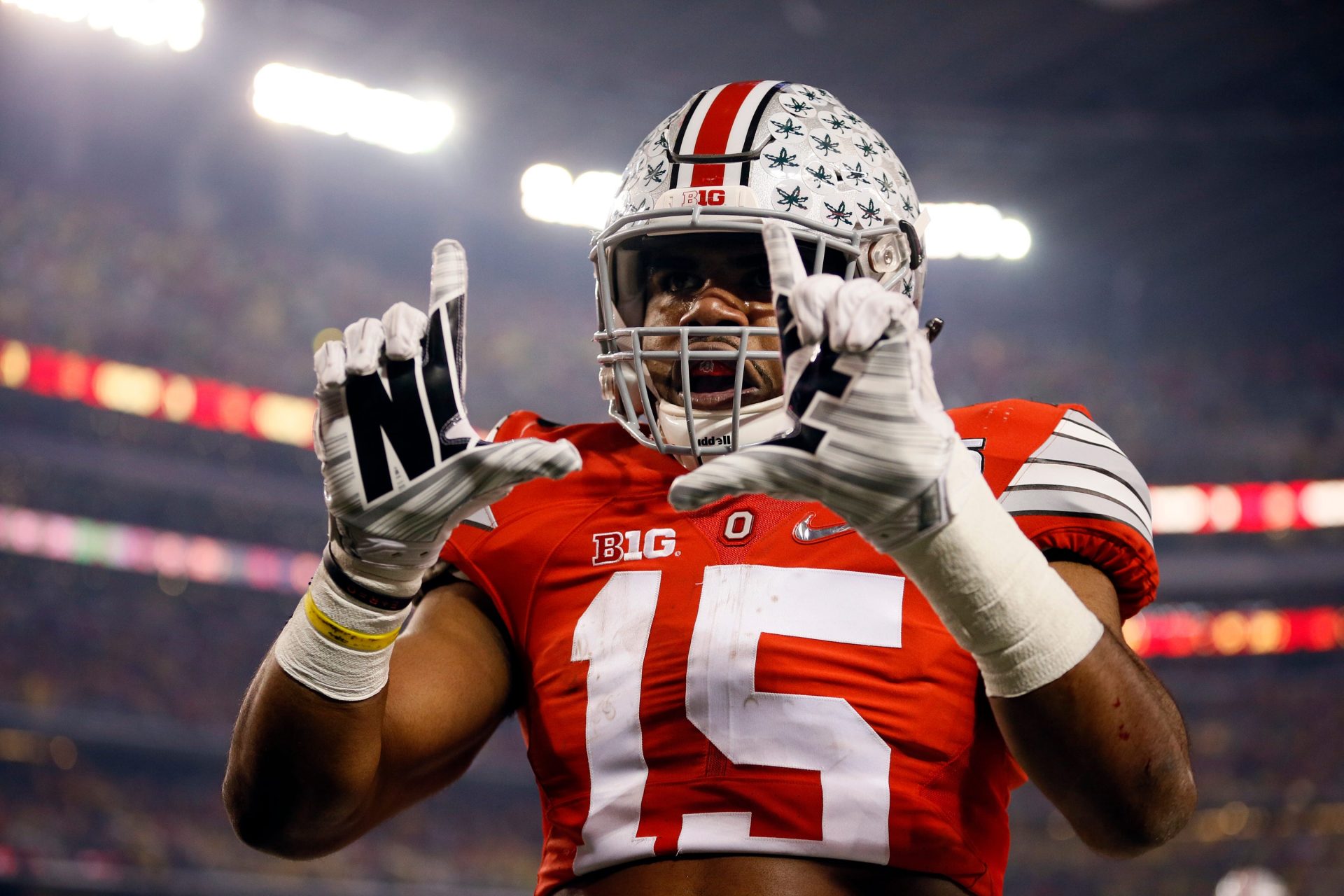As one of the most prominent programs in college football, the Ohio State Buckeyes face doubters inside and outside at all times. But when was the last time Ohio State won the national championship?

The Last Time Ohio State Won the College Football National Championship
Ohio State last won a college football national championship following the 2024 college football season. The Buckeyes took down the Notre Dame Fighting Irish in a contest where the scoreline somewhat flatters their opponent. Ryan Day’s team leaped out to a substantial lead and, despite a gritty fightback from the Irish, pounded out a 34-23 win in front of 77,660 fans in Mercedes-Benz Stadium.
After giving up an opening-drive score, Ohio State put up 31 points without Notre Dame finding so much as a field goal in response. Quarterback Will Howard orchestrated some masterful scoring possessions while running back Quinshon Judkins justified his offseason price tag by becoming a part of a Buckeyes record-setting quartet with over 1,000 yards on the season.
It completed a remarkable postseason run that almost wasn’t in 2024. Under the previous College Football Playoff format, the Buckeyes would have been eliminated from contention following two regular season losses and a failure to reach the Big Ten Championship Game.
Yet, in this expanded playoff format, Ohio State thrived when the lights shone the brightest. There was a poetic symmetry to their championship success, becoming the first team to win a new edition of the postseason format since they won the national title in the first year of the four-team playoff. Speaking of which…
The Story of Ohio State’s Previous National Championship Win
On Monday, Jan. 12, 2015, in front of 85,689 at AT&T Stadium in Arlington, Texas, the Buckeyes manhandled the Oregon Ducks 42-20. It marked the eighth recognized title since the team began playing football in 1904. The championship marked the first title since Jim Tressel coached the team to an upset of heavily favored Miami in 2002.
It also marked Urban Meyer’s third title in less than a decade, after winning two at the University of Florida. It marked the third national title for the Big Ten Conference since Ohio State, under Woody Hayes, went 9-0-1 in 1970.
Before he stepped into the limelight and Buckeye lore, Cardale Jones became famous for this tweet, bemoaning the logic of attending classes during his redshirt freshman season of 2012. The team suspended him for a game, and it looked like he would ride the pine during his stay in Columbus.
Playing behind J.T. Barrett didn’t help either, as the starter moved the team up and down the field. Yet, life will throw curveballs and place people into positions to either sink or swim on the big stage. A big break for Jones appeared on the horizon.
Barrett broke his ankle in the Michigan game. As a result, Jones ran onto the field and took the reins. His job description centered around doing nothing foolish and letting the athletes play.
While not spectacular, Jones completed 61% of his passes and averaged 247 yards, which saw him live up to the latter part of the aforementioned mandate. After leaving Ohio State, Jones bounced around the NFL and minor leagues.
However, he managed to correct a previous wrong, earning his degree in 2017 in African American Studies while actually playing school.
FOLLOW ALONG: Track Every Transfer Portal Entrant in our CFN Transfer Portal Tracker now!
Perhaps the most astounding aspect of Ohio State’s run toward the title will remain Ezekiel Elliott’s outright dominance. After Barrett suffered the injury, the Buckeyes’ running back sunk into prime squat depth, carrying the team to the championship.
Entering the national championship, no player on either team affected the previous two games like Elliott. Elliott tallied 450 yards on forty carries and four touchdowns in victories over the Wisconsin Badgers and Alabama Crimson Tide. The Ohio State legend saved his best game of the year for last.
Elliott torched the Ducks for 246 yards on thirty-six carries and four touchdowns, slamming the door on Oregon and cementing his spot in team history. Mark Helfrich’s team did not have any answers and looked helpless, and the Buckeyes did whatever they wanted to do in the second half of the game.
Ohio State’s Record in the National Championship Game
In national championship games, whether under the CFP or BCS umbrella, the Buckeyes now hold a 3-3 record. With victories over the Miami Hurricanes, Oregon, and Notre Dame, plus losses against the Florida Gators, LSU Tigers, and Alabama Crimson Tide, the Buckeyes evened the record.
If you look back at the losses, in a way, Ohio State ran into all-time outstanding performances.
In 2007, after Ted Ginn took the opening kickoff ninety-three yards, the Gators took the field and rolled up 370 yards while holding Meyer’s squad to 82 yards of total offense. The following season, LSU overcame two regular-season losses, catching fire late and grinding out a 38-24, pulling away in the third quarter.
In 2021, Alabama, behind one of the most dominant championship game performances, dismantled the Buckeyes 52-24. Mac Jones threw for 464 yards and five touchdowns.
College Football Network has you covered with the latest from the ACC, Big Ten, Big 12, SEC, and every Group of Five conference and FBS Independent program.

